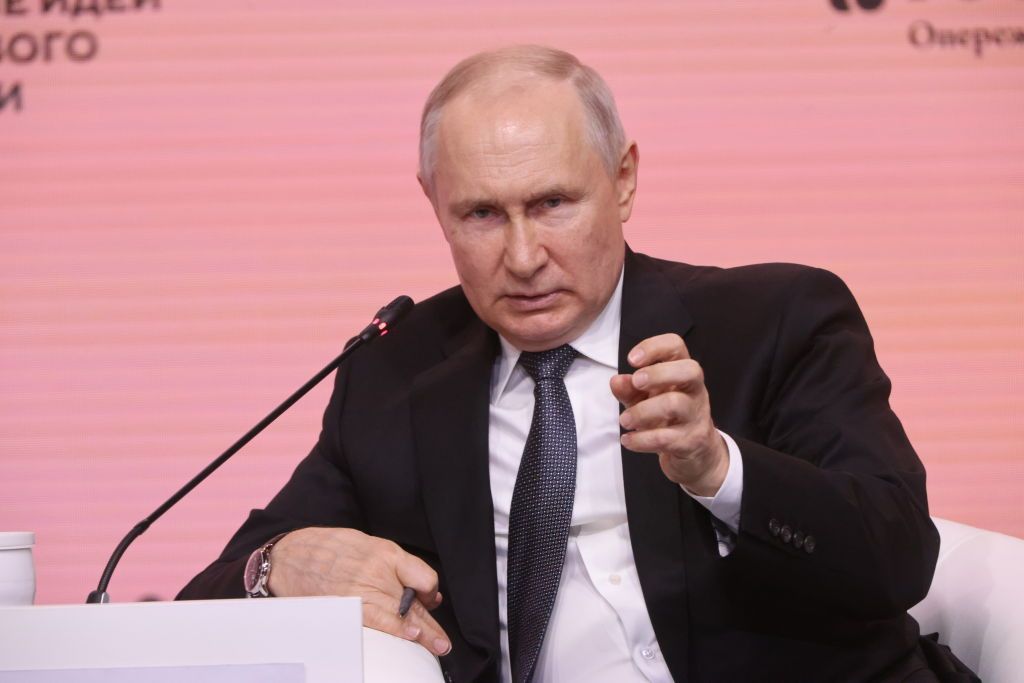
Editor's Note: The names of the people from the Russian-occupied territories interviewed by the Kyiv Independent for this story have been changed to protect their identity, as they have shared sensitive information that could place them in danger.
As Russia largely exhausted its military potential on the battlefield, the Kremlin continued its silent warfare in occupied territories to convert millions of Ukrainians into Russian citizens.
Russian President Vladimir Putin signed an executive order in late April that set a deadline for applying for Russian citizenship in the occupied areas of Ukraine. Those who refuse and elect to hold onto their Ukrainian passports face losing their property rights, prison sentences, and deportation from their homes.
Experts say that with the executive order, Putin is looking to expel those unsympathetic to his regime from the occupied territories while potentially setting the stage for further invasions under the pretext of "protecting Russian citizens."
They also warn that it paves the way for the mass surveillance of Ukrainians.
Holding Russian citizenship in the occupied territories also means that Moscow could conscript locals and force them to fight against their own country.
Passportization, or issuing passports in a foreign territory, is not a new move by the Kremlin.
After annexing Crimea in 2014, Russia forced citizenship on over two million people on the peninsula through automatic passportization, a practice that grants citizenship en masse to residents of occupied territories without their consent or input and, in some cases, even in their absence.
Three years later, the Kremlin expanded its passportization to include parts of Ukraine's eastern Luhansk and Donetsk oblasts, occupied by Russia in 2014. Instead of automatic passportization, a blatant violation of international law, the Kremlin shifted tactics in an attempt to coerce Ukrainians to take on Russian citizenship themselves.
Russia has extended its passportization even further into the Ukrainian territories Russia claims to have annexed since its full-scale invasion of Ukraine in February 2022.
"(The executive order) is like a vacuum cleaner. It is now picking up all the loopholes that have allowed people under occupation to live without needing a Russian passport," Oleksandr Pavlichenko, the executive director of the Ukrainian Helsinki Union for Human Rights, told the Kyiv Independent.
 The Kyiv IndependentOlena Makarenko
The Kyiv IndependentOlena Makarenko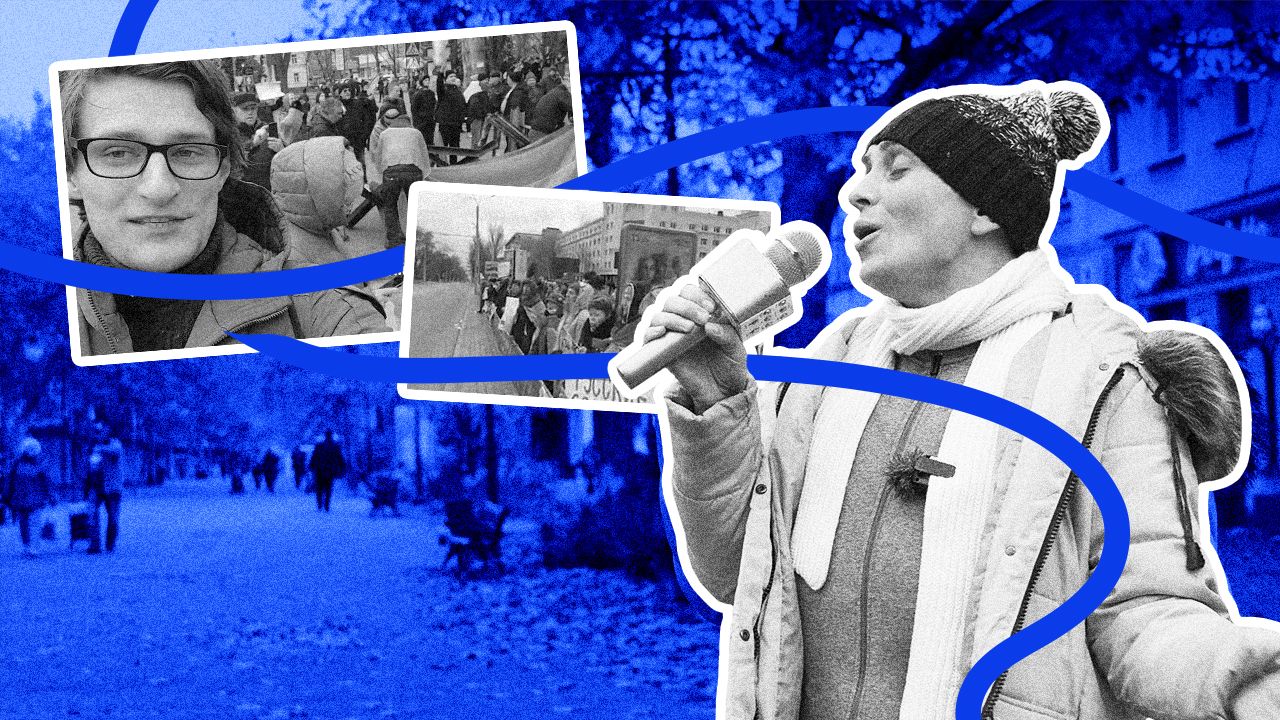
Forced passportization
Under Putin's executive order, anyone living in the Russian-occupied parts of Kherson, Zaporizhzhia, Luhansk, and Donetsk oblasts who refuses to accept Russian citizenship will be considered a foreigner and could face deportation starting on July 1, 2024.
Following sham referendums, Russia illegally declared the annexation of these regions on Sept. 30, 2022, totaling the number of annexed provinces to five with Crimea. A majority of states in the UN General Assembly do not recognize the move.
The summer 2024 deadline in Putin's decree follows a first deadline that has made it mandatory for Ukrainians living in these territories to register and provide the Russian authorities with fingerprints and passport photographs by October 2023.
"This entails Russia receiving a broad range of personal data, which cannot be considered safe when it is transmitted to Moscow," Alyona Luneva, director of advocacy at Ukraine's ZMINA human rights center, told the Kyiv Independent.
Legal repercussions leave even less room for resistance against the new rules in the occupied territories.
According to Putin's decree, if locals refuse to register, they will be banned from working and removed from their place of registration – a requirement that could result in the loss of property ownership, Pavlichenko said.
"This property ownership right can be declared invalid. It can be revoked, meaning they will lose their rights to that real estate," said Pavlichenko.
Amid the ongoing situation, a disturbing trend has emerged: individuals who resist and stand against Russian occupation, even indirectly by not having a Russian passport, now find themselves confronted with the alarming prospect of facing even harsher penalties.
And locals of the annexed regions who resist face prison time or deportation without the option to return as Russia deems these individuals a threat to national security.
Even referring to these territories as Russian-occupied on social media could meet the "threat to the national security" criteria. A donation for Ukraine's army or volunteers could be considered as financing "terrorism or extremism" or both.
With these tactics, Russia is trying to intimidate locals while also forcing those who oppose the regime to flee the occupied regions, as it did in Crimea, Luneva said.
"Those who refused (to take a Russian passport) are considered a foreigner on their own land with certain restrictions, knowing that they may be persecuted or expelled any time Russia wants," said Luneva.
Russia has already sent some of its citizens to prison for high treason over their opposition to the Putin regime or the war in Ukraine.
A woman from Moscow and another in Russian-occupied Melitopol in Zaporizhzhia Oblast were arrested for donating to the Ukrainian military. Both face up to 20 years in prison for high treason.
And Russian opposition journalist Vladimir Kara-Murza, who is also a British citizen, was jailed for 25 years for posts about Russian atrocities in Ukraine and for criticizing the Kremlin.
"Russia follows this path by creating alarming court trials to demonstrate that they can fabricate charges and imprison or, at best, deport anyone," said Pavlichenko.
 The Kyiv IndependentAlexander Khrebet
The Kyiv IndependentAlexander Khrebet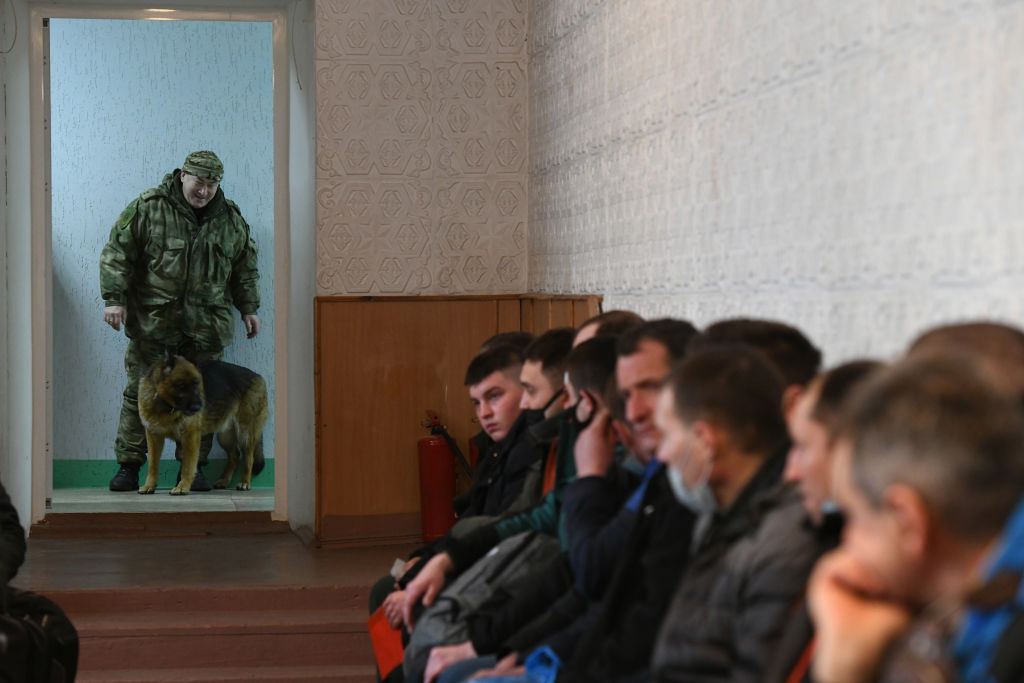
Carrot-and-stick approach
Human rights activist Pavlichenko said that before, Russia used a carrot approach by trying to incentivize Ukrainians to obtain Russian citizenship in occupied Luhansk and Donetsk oblasts when it began passportization in those areas in 2017.
But that carrot gradually transformed into a stick as Russian authorities in the occupied territories made it harder each year to live without Russian citizenship or at least have a Russian proxy-issued identification card.
Over time, this resulted in locals being stripped of their entitlement to social benefits, such as maternity, sick leave, and pensions. Securing an office job became virtually impossible without a Russian passport. The dire circumstances forced an increasing number of people to seek Russian citizenship.
Nonetheless, those who resisted acquiring Russian citizenship could still find ways to live and work in the occupied parts of Luhansk and Donetsk oblasts.
Now, Putin's decree has switched gears, wielding a full-blown "stick" approach by terminating social benefits and threatening the deportation of those who reject Russian citizenship by the summer of 2024.
Ukraine's Ombudsman Dmytro Lubynets told the Kyiv Security Conference in late May that over 13 million people are currently living under Russian occupation or in proximity to the frontline.
Olena from Antratsyt in Luhansk Oblast, occupied by Russia since 2014, is an example of quiet resistance to becoming a Russian citizen. (Editor's note: The name has been changed to protect her identity.)
Over the course of the six years since Russia began its forced passportization campaign in Donetsk and Luhansk oblasts, Olena managed to keep her Ukrainian passport.
That changed in late May when the local administration signaled that any social welfare would be unavailable for those who don't hold Russian citizenship. Olena was told it is "impossible to have a Russian bank account without a passport" and that any payments would be made through Russian banks.
"They threaten to withhold payments. They do everything so that we apply for the passports ourselves," Olena told the Kyiv Independent.
Olena said she delayed having Russian citizenship as long as she could. "But we don't have any choice now. If you live with wolves, you howl like a wolf," she said, referring to the Russian proverb.
"Not only have they occupied us, but they have also oppressed us," Olena said, adding that she wished she had left Antratsyt in 2014 when Russia occupied the town. "With our pennies now, it's very difficult (to leave)," she said.
Even if you have enough money, it is still hard to leave the Russian-occupied territories with Ukrainian documents only.
Roman (Editor's note: The name has been changed to protect his identity.), a native of Donetsk, also occupied by Russia since 2014, avoided becoming a Russian citizen as he didn't want to have any documents Moscow or its proxies are issuing in the occupied parts of Donetsk Oblast.
He appeared apprehensive regarding Putin's recent legislation, concerned that this development may prompt suspicion of him from Russian authorities, as he holds neither a proxy nor a Russian passport.
"They don't know I'm in Donetsk because I've never contacted the local authorities. I don't even have a local phone number," Roman told the Kyiv Independent while still in Donetsk.
Roman was able to flee to Lithuania shortly after talking to the Kyiv Independent. He was interrogated by the Russian FSB twice, with his lack of Russian citizenship raising suspicion.
"The FSB will interrogate, but not having Russian documents is not an offense so far," Luneva said.
However, Luneva warned that the Russian security services would closely watch those who stayed without obtaining a passport, which could be seen as a sign of disloyalty.
"If people stay, some of those will be under FSB watch as they live there without Russian passports," Luneva said.
Pavlichenko said this policy of coercive passportization, in violation of the Geneva Conventions, also allows Moscow to conscript Ukrainians into the Russian army while Moscow is waging a brutal war against Ukraine.
According to Article 51 of the fourth convention, the occupying power is prohibited from coercing civilians into serving in its armed or auxiliary forces, and any form of pressure or propaganda to induce voluntary enlistment is forbidden.
Nevertheless, Russia has been conscripting Ukrainians in Crimea since 2015. Moscow also forcibly conscripted thousands of Ukrainians from Donetsk and Luhansk oblasts, starting just a week before Russia unleashed its full-scale invasion of Ukraine — even those who held only Ukrainian documents.
Many forcibly conscripted men are believed to be thrown into the battles as cannon fodder and killed in action, fighting against their own country.
Pavlichenko said this alleged Russian crime is much deeper in its consequences, as it creates a negative attitude not only toward Russia but also to Ukraine.
"Ukraine cannot protect them, and they are forced to fight against Ukraine. People can be killed, get maimed, or injured. Or captured by Ukrainian forces and punished for being in the Russian army," said Pavlichenko.
 The Kyiv IndependentAlexander Khrebet
The Kyiv IndependentAlexander Khrebet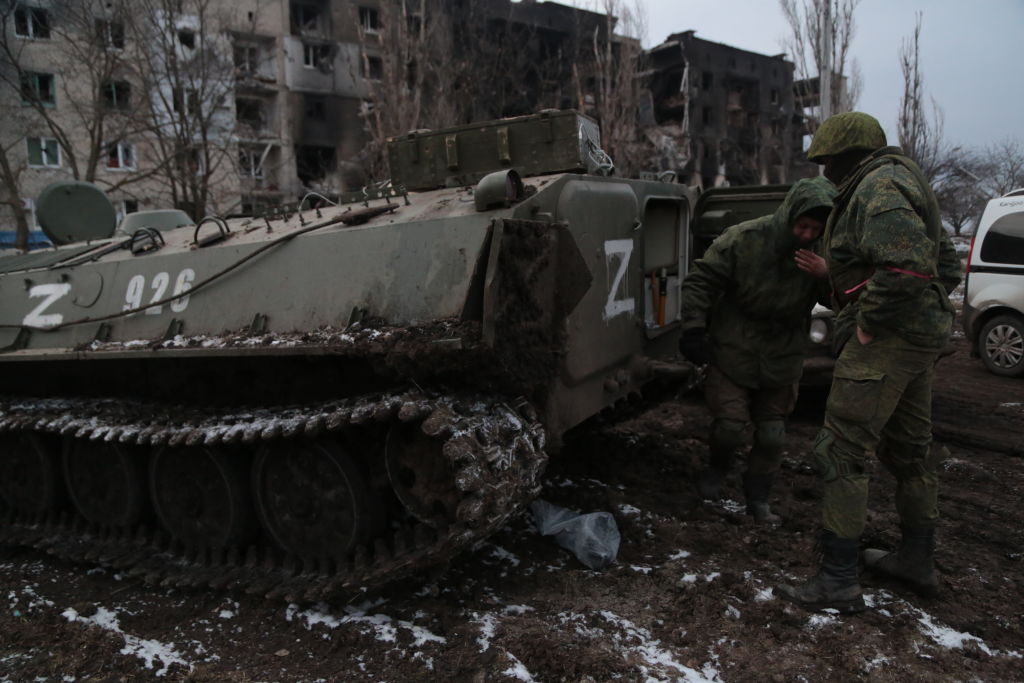
Contradicting signs from Kyiv
Putin's decree has provoked conflicting signals from Kyiv over whether people in the occupied territories should obey forced Russian passportization.
Ombudsman Dmytro Lubinets advised Ukrainians under occupation to take Russian citizenship to survive the occupation. In late May, the Ukrainian Parliament Commissioner for Human Rights repeated the plea that Ukraine would not prosecute those who accepted Russian passports under duress.
"If you cannot leave for various reasons, and in order to survive, you are forced to get a Russian passport – take it and survive," Lubinets told national television.
Contradicting the ombudsman, Deputy Prime Minister Iryna Vereshchuk called on those Ukrainians under Russian occupation not to take Russian passports.
"My recommendations to Ukrainians in the temporarily occupied territories remain the same: Do not take Russian passports, do not cooperate with the occupiers, flee if possible, wait for the Armed Forces (if you stay)," Vereshchuk, who also serves as the minister for the reintegration of the temporarily occupied territories, said in May.
Before the full-scale invasion, Russia forced its passports on over three million Ukrainians, granting them in occupied Crimea and Donbas.
Russian Prime Minister Mikhail Mishustin claimed in late May that his country has converted another 1.5 million since it illegally annexed parts of four occupied Ukrainian regions in October 2022.
Amid Russia's invasion, the Ukrainian parliament amended the law, clarifying that forcibly acquired Russian citizenship will not be recognized and does not lead to Ukrainian passport loss.
Yet, the law is ambiguous as it overlooks "voluntary" Russian citizenship applications fueled by Russia's influence.
Unlike with automatic passportization, which grants a resident new citizenship unilaterally, Russia has made it appear that Ukrainians are taking on Russian citizenship of their own volition through these coercive tactics, Luneva said, adding that conflicting signals from Kyiv are causing confusion in occupied territories.
"Ukraine must make it clear that obtaining a Russian passport under duress is neither a crime nor collaboration," said Luneva.
 The Kyiv IndependentDaria Shulzhenko
The Kyiv IndependentDaria Shulzhenko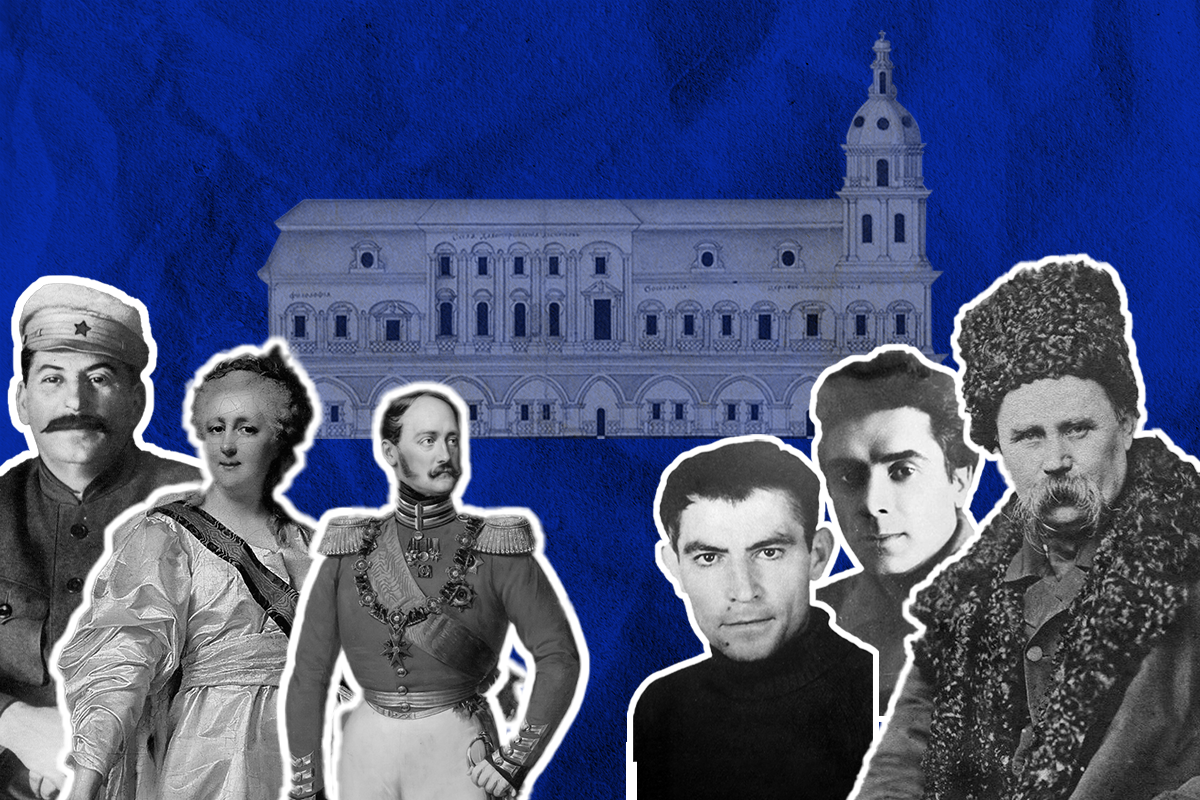
Note from the author:
Hello dear reader,
I am Alexander Khrebet, the author of this story.
While this article was edited, "Roman" texted me from Lithuania. He managed to flee. The Russian FSB interrogated him twice – when he crossed from occupied Donetsk Oblast to the Russian Rostov region and on the Russia-EU border. However, millions of Ukrainians are still forced to remain under Russian occupation.
The Kyiv Independent strives to bring you updates from these regions and the people who live there. And your support sustains our journalism. If you enjoy our work, please consider joining our membership or supporting us with a one-time donation.
Comments
No comments yet. Be the first to react!